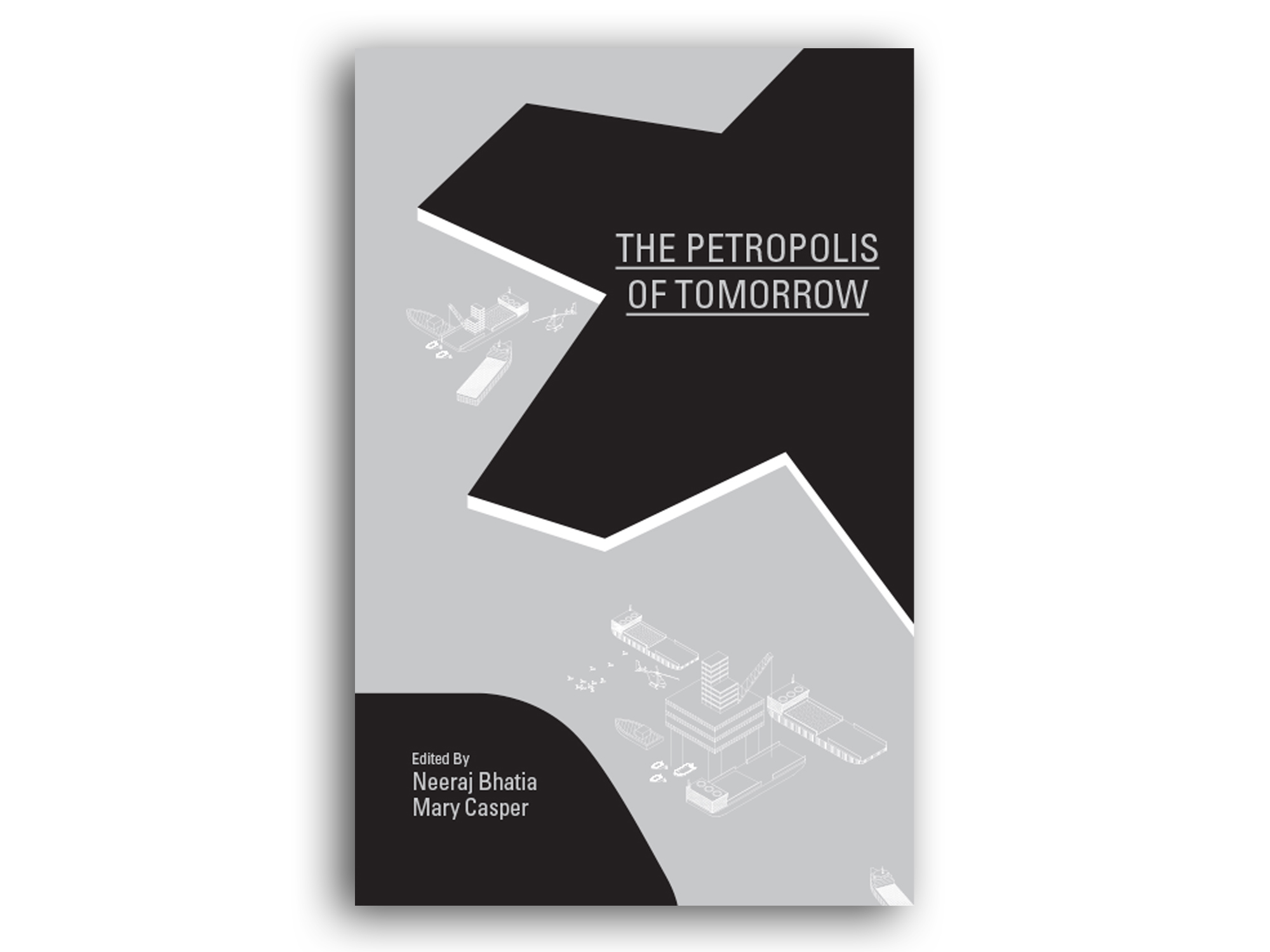In recent years, Brazil has discovered vast quantities of petroleum deep within its territorial waters, inciting the construction of a series of cities along its coast and in the ocean. We could term these developments as Petropolises, or cities formed from resource extraction. The Petropolis of Tomorrow is a design and research project, originally undertaken at Rice University that examines the relationship between resource extraction and urban development in order to extract new templates for sustainable urbanism. Organized into three sections: Archipelago Urbanism, Harvesting Urbanism, and Logistical Urbanism, which consist of theoretical, technical, and photo articles as well as design proposals, The Petropolis of Tomorrow elucidates not only a vision for water-based urbanism of the floating frontier city, it also speculates on new methodologies for integrating infrastructure, landscape, urbanism and architecture within the larger spheres of economics, politics, and culture that implicate these disciplines.
Articles by: Neeraj Bhatia, Luis Callejas, Mary Casper, Felipe Correa, Brian Davis, Farès el-Dahdah, Rania Ghosn, Carola Hein, Bárbara Loureiro, Clare Lyster, Geoff Manaugh, Alida C. Metcalf, Juliana Moura, Koen Olthuis, Albert Pope, Maya Przybylski, Rafico Ruiz, Mason White, Sarah Whiting
Photo Essays by: Garth Lenz, Peter Mettler + Eamon Mac Mahon, Alex Webb
Research/ Design Team: Alex Gregor, Joshua Herzstein, Libo Li, Joanna Luo, Bomin Park, Weijia Song, Peter Stone, Laura Williams, Alex Yuen
REVIEWS
“Rather than provide a single answer, the projects in Petropolis offer up a rich menu of ways to start thinking about questions about the boundary between private and public, about the role of design in an industry driven by economic gain, and about the relationship between object and system. In speculating on urbanism on such challenging and dispersed sites, Bhatia posits a way for architects to operate on both the technological system and the territory, using the geospatial, analytic and projective skillset of architectural urbanism.”
— Nicholas Pevzner, Scenario Journal
“What stands out about The Petropolis of Tomorrow is that it refuses a black-and-white way of looking at the world where design is either defiant or complicit.”
— Raj Mankad, Cite Magazine
“Petropolis offers a thorough staging of some difficult questions, interrogating the notion of the frontier across a range of scales and honing our attention on the perpetually unresolved matter of the edges of form–be it physical, economic, or socio-political–without trying to wish it away”
— Justin Fowler, Archdaily
“An elegant collection of student projects and collected writings on the idea of resource-based frontiers, this publication documents speculative roles that architecture and urban design can assume as sites of extraction increasingly resemble cities themselves. This is an inspiring, and very thick, pamphlet for any student of architecture or young practice”
— Mason White, Metropolis Magazine
“The essays collected under its positions section are the book’s greatest contribution, where the oil extraction industry is conceived in terms of archipelagos, wild frontiers, and company towns. The essays themselves form an archipelago grounded as much in geographical as architectural theory and create a web of argument whose nodes readers are invited to connect themselves….Petropolis is a valuable contribution to and provocative engagement with the growing interest in industrial architecture and its geographies.”
— Steve Parnell, The Architectural Review






